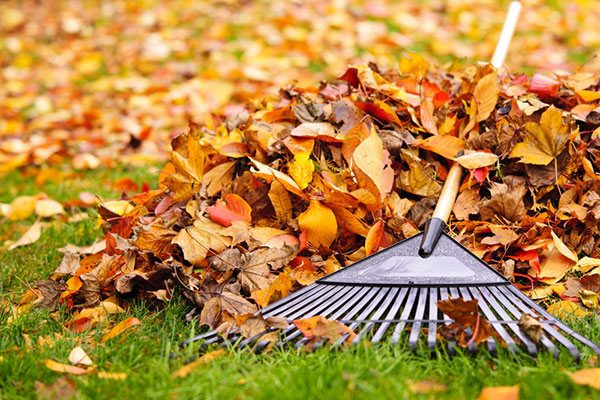Raking Leaves Or Not: As the fall season arrives and leaves start to fall and fall in your yard, every homeowner is left with the question: racking leaves or not? You might be one of those homeowners who add raking leaves into piles and bagging them to your weekend to-do list.
But the question is whether racking up leaves and taking them to a landfill is the best way to dispose of them. This article will answer whether you need to rack leaves first.

What’s the Idea Behind Racking Leaves?
Raking leaves prevent them from forming a mildewy mush that can keep the lawn grass from growing strong after the winter season. Furthermore, a thick blanket of leaves can starve the grass of sunlight, which consequently causes it to die. So, ranking leaves into piles and bagging them up can effectively prevent all that, but it might not be the best solution.
Is it Okay to Leave Fallen Leaves?
If you want to maintain a well-kept lawn, racking leaves surely help you achieve the same, but leaving them on your lawn may benefit your property’s ecosystem. According to NWF (National Wildlife Federation), homeowners shouldn’t rack the leaves and let them be.
A leaf layer on the grass provides an ecosystem to a host of many species of insects. Experts say blowing or racking leaves can be worse for your yard. Leaving at least a thin layer of leaves provides a natural fertilizer for your plants and grass and reduces landfill emissions.
Can Raking Leaves Be a Good Idea?
Racking leaves can help homeowners limit the critters they don’t want close to their homes. How leaves have been raked can be problematic. Leaves are often sent to landfill sites and take up unnecessary space. U.S. Environmental Protection Agency (EPA) suggests that yard debris and leaves account for 13% of the solid waste in the USA, around 33 million tons per year.
Moreover, they release greenhouse methane gas by combining it with other organic materials when they break down. This is due to the lack of enough oxygen to decompose. The methane gas is harmful to the environment.
Another option is burning leaves, which can cause respiratory issues as they release chemicals and particles into the air. It can contribute to air pollution and negatively impact the environment and human health.
What Should You Do With Fallen Leaves?
When handling fallen leaves, the best way is to mulch and compost them. It is beneficial for the environment as well as the health of your lawn. Instead of letting leaves rot in the landfill, use raked leaves as a base in the compost bin. Composting will turn them into a soil-enriching composite. Chopped-up and dry leaves are garden’s gold, make a great mulch, and act as a natural fertilizer.
If you have a thin layer of leaves on your lawn, there is no need to rake. All you need to do is run your lawnmower over the fallen leaves and let them sit. However, a thick layer of leaves may require raking if you don’t smother the grass.
Raking Leaves Or Not | Blog Article | T-Squared Landscaping | All Rights Reserved | Greenville SC
